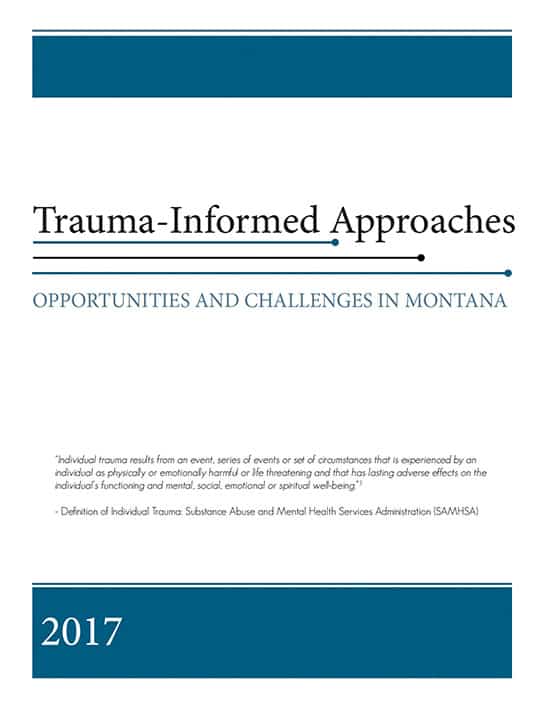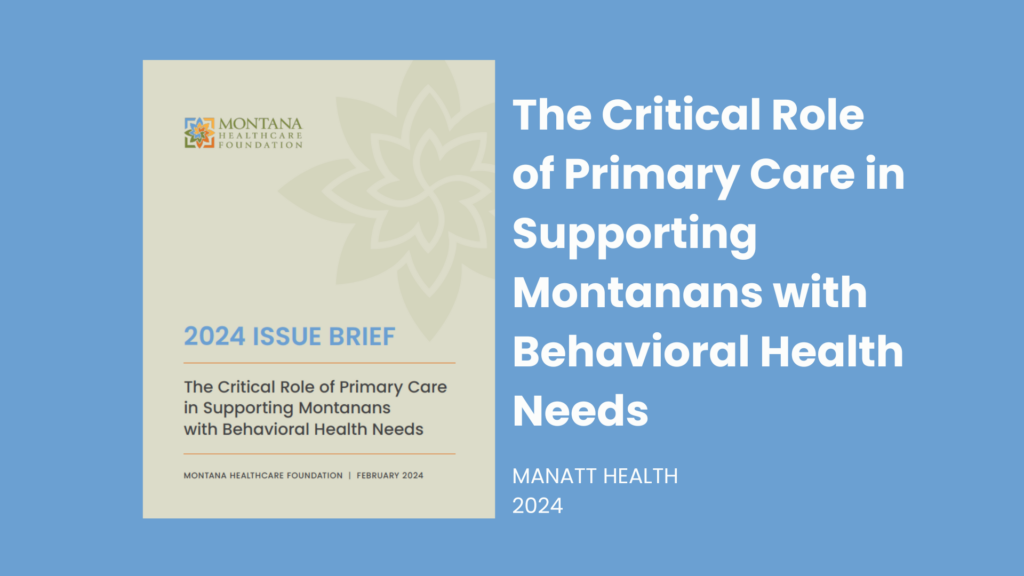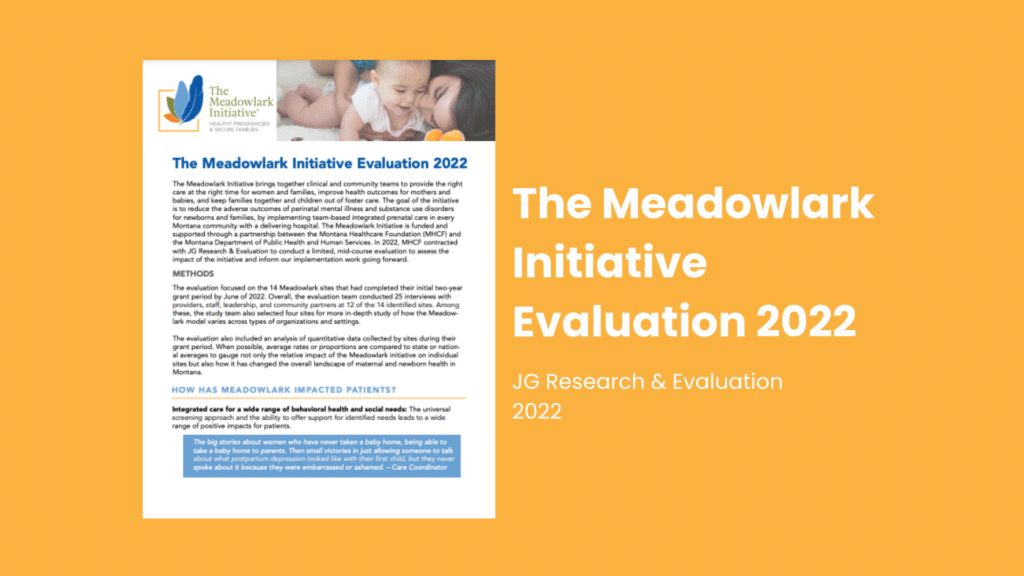Over the past two decades, professionals in education, health, and human services have become more aware of the wide-ranging effects of trauma on health and well-being. Starting with the landmark Adverse Childhood Experiences study in the late 1990s, which linked the experience of potentially traumatic experiences in childhood to a wide range of long-term health effects, researchers have gone on to explore how adverse events experienced as trauma correlate with everything from graduation and incarceration rates to preterm birth. In response to this research, practitioners have developed clinical and systems-based trauma-informed approaches to better support traumatized individuals and create environments that are sensitive to their needs while preventing re-traumatization. This cross-sector work has occurred both in the U.S. and internationally, as well as at the state and local levels in Montana.
Because of the emerging evidence that these approaches may improve health and academic outcomes, there has been a groundswell of interest in trauma-informed approaches in Montana. The Montana Healthcare Foundation commissioned this report in partnership with the Office of Public Instruction and other agencies to better understand and quantify the use of these emerging best practices in health and human services settings, with a focus on education.
You can read a brief of this report here.
Download


